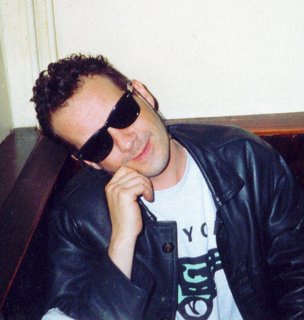
November 11th is a date that, for as long as I can remember, leaves me full of deep emotional ambivalence. My father and my maternal grandfather both took the King's shilling and joined up in 1914 and 1939 respectively.
Grandad, a young groom from Kilkenny, joined the Royal Army Service Corps, where no doubt his experience with horses came in handy. He served in Gallipoli, Egypt and the trenches of Northern France where he lost his sight in a mustard gas attack. His British Army paybook recorded the cause of his discharge as a simple case of 'granular trachoma', rather than indicating that he was a fortunate survivor of a monstrous weapon of mass destruction.
At school in Birkenhead, where Wilfred Owen was a home-boy hero, it was easy for me to understand the bitter black irony in his poem Dulce et decorum est and yet hard to explain it to my schoolboy pals, raised as we all were on the nobility of war through comic books and history classes.
Gas! Gas! Quick, boys! – An ecstasy of fumbling,In my imagination, my grandfather was that floundr'ing man.
Fitting the clumsy helmets just in time;
But someone still was yelling out and stumbling,
And flound'ring like a man in fire or lime . . .
Dim, through the misty panes and thick green light,
As under a green sea, I saw him drowning.In all my dreams, before my helpless sight,
He plunges at me, guttering, choking, drowning.
My father joined up to continue a war against fascism that for him had begun against Mosely's blackshirted thugs on the streets of Birkenhead in the 1930s. He enlisted in the 8th Battalion (Irish) of the King's Liverpool Regiment and spent most of the war in England and Scotland preparing for the second front. When it came in June 1944 he embarked for Normandy on the Ulster Monarch, a vessel that would later carry his family back and forth to Ireland until the 1960's.
 He was landed on Juno Beach on the morning of 6th of June but failed to make it any further into France. Wounded by a mortar shell on the most heavily defended beach of the D-Day landings he was evacuated back to England. Juno took the lives of many, if not most, of his 8th Battalion comrades.
He was landed on Juno Beach on the morning of 6th of June but failed to make it any further into France. Wounded by a mortar shell on the most heavily defended beach of the D-Day landings he was evacuated back to England. Juno took the lives of many, if not most, of his 8th Battalion comrades.So many died on that morning that his battalion was disbanded and he spent the rest of the war attached to other units. He was MIA after the Ardennes offensive in late 1944 and then a witness to the liberation of the Belsen concentration camp the following year.
Like my grandfather before him, when his war ended he collected his demob suit and came home to his young wife and tried to resume his life as best he could.
Their wars were something both men put behind them. It was not something that was dwelt upon. They donned a poppy in November and observed two minutes silence at the 11th hour of the 11th day of the 11th month. They carried no pretensions regarding the nobility of war or the importance of patriotism. Neither man would willingly discuss their experiences, which had neither ennobled nor diminished them. They had both killed and nearly been killed by men like themselves, forced into foreign fields away from their lovers and families. The war shaped their lives but did not make it.
Remembrance for them was not a celebration death and glory, of flags and battle honours but a moment of regret felt in the hope that their history would not be repeated. I remember them both not for their status as warriors, but as ordinary men who survived horrors inflicted on them that I can barely imagine.
It is the living not the dead we should cherish, the survivors not the fallen, for we can do nothing for the fallen except ensure that their sacrifice is not repeated anew.


No comments:
Post a Comment